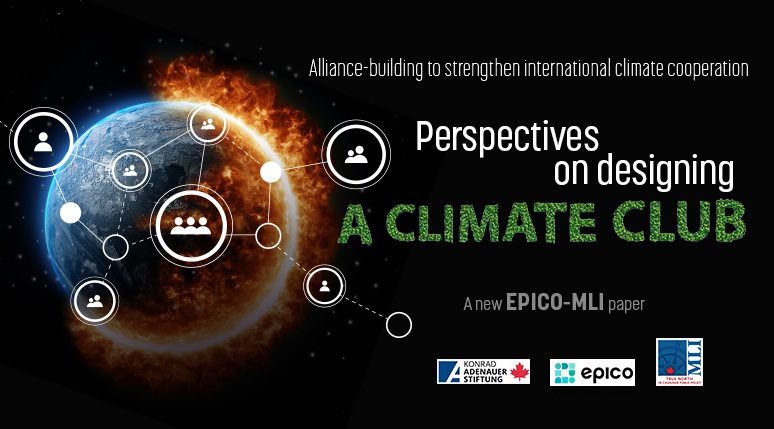By Paul Kumar, Heiner Von Lüpke, Marian Feist, Heather Exner-Pirot, Hubertus Bardt
November 4, 2022
Executive Summary
The concept of a climate club has found references in academic literature on club theory, predominantly highlighting the benefits of exclusivity and measures conferring trade benefits. In recent months, the topic has re-entered the political mainstream with a broader conceptualisation. Most notably, a Statement of the G7 countries under the presidency of Germany in June 2022 expressed the intention of establishing an international climate club that is open and cooperative, with aspirations ranging from coordinating ambitious and transparent climate mitigation policies, accelerating industrial decarbonisation, and boosting partnerships to promote the just energy transition.
A climate club in this iteration is still in a nascent stage, with several aspects requiring further concretisation. This paper offers insights on designing the climate club outlined in the G7 Statement, particularly with a focus on sectoral collaboration, cooperation with developing countries, and establishing synergies with the goals of the Paris Agreement.
Recommendations for designing a climate club
- Efficient and strategic utilization of time and political capacity to move away from a top-down approach focused on carbon pricing to a flexible plurilateral approach is supported by existing experiences in international climate cooperation and support the need for a climate club.
- Recognizing the polycentric nature of international climate cooperation, while also strengthening alliance-building in matters of policy, finance, technology, and trade should form the contours of a climate club.
- A climate club with sectoral foci offers pathways for accelerated emission reduction in emission-intensive industries with trade exposure.
- The climate clubs can be a valuable forum for international knowledge-sharing and transparent communication about a comprehensive mix of climate policy measures across countries.
- The climate club could improve the effectiveness of climate finance deliberations in at least two aspects. First, it could provide the institutional framework for enhanced cooperation across industrialized and developing countries, thereby fostering trust between the two groups of countries. Second, by focusing on sectoral topics such as industry, energy or transport, a club could foster cooperation on sector specific policies, technologies and finance instruments and flows specific to sectoral needs.
- The climate club can aid and supplement the Paris Agreement and the United Nations Framework Convention on Climate Change (UNFCCC) by addressing several action points contemplated therein, and accelerating the pace of action.
- The club activities should reinforce commitment to the principle of common but differentiated responsibilities and use the practical experience and learnings from existing initiatives such as the Just Energy Transition Partnership, while offering a framework for improving their functioning.
- The climate club should build synergy with existing institutional structures within the UNFCCC, and develop the institutional structures, which have been difficult to establish in the UNFCCC, but are necessary for increasingly deeper climate cooperation and accelerated emission reduction.







